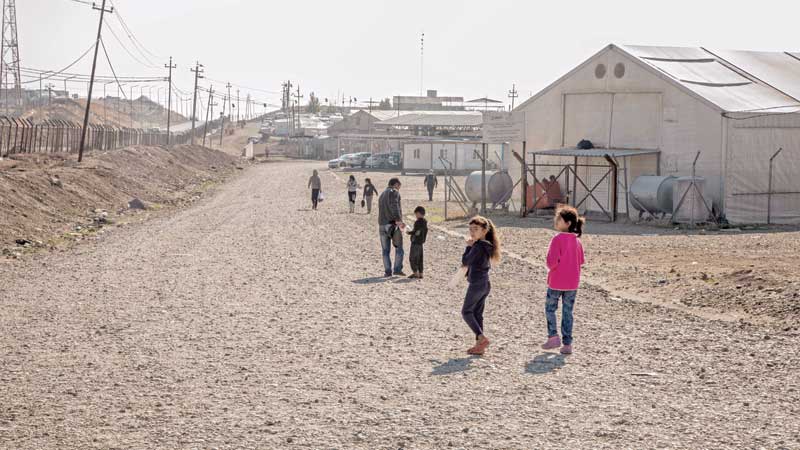

BAJET KANDALA CAMP, Iraq: For half a decade, Zedan suffered recurring nightmares about militants overrunning his hometown in northern Iraq. The 21-year-old Yazidi was just starting to recover when COVID-19 revived his trauma.
Zedan had lost several relatives when the IS group stormed into Sinjar, the rugged heartland of the Yazidi religious minority in Iraq’s northwest.
The militants killed Yazidi men, took the boys as child soldiers and forced the women into sexual slavery.
Zedan and the surviving members of his family fled, finding refuge in the Bajet Kandala camp near the Syrian border where they still live today.
“We used to be farmers living a good life. Then IS came,” he said, wringing his hands.
In a pre-fabricated building hosting the camp’s mental health clinic, Zedan shared his traumas with Bayda Othman, a psychologist for international NGO Premiere Urgence.
Zedan refers to the violence of 2014 vaguely as “the events”.
The United Nations says they may constitute something much more serious: genocide.
“I started having nightmares every night. I would see men in black coming to kill us,” Zedan said, telling Othman that he had attempted suicide several times.
He has been seeing her for years, learning how to cope with his Post-Traumatic Stress Disorder (PTSD) through breathing exercises that she taught him.
Earlier this year, his nightly panic attacks stopped. Finally, he could sleep again. But only for a few months. In March, Iraq declared a nationwide lockdown to try to contain the spread of COVID-19. Zedan broke down.
“I fear that my family could catch the virus or give it to me,” he said. “It obsesses me.”
‘THE NIGHTMARES
RETURNED’
As lockdown dragged on, Zedan’s brother lost his job at a stationery shop on the edge of the camp.
“There’s no more money coming into the family now. Just thinking about it gives me a panic attack,” he said.
“The nightmares returned, and so did my desire to die.”
Out of Iraq’s 40 million citizens, one in four is mentally vulnerable, the World Health Organisation says. But the country is in dire shortage of mental health specialists, with only three per one million people.
Speaking about trauma or psychological problems is
widely considered taboo, and patients who spoke to this agency agreed to do so on the condition that only their first names would be used.
In camps across Iraq, which still host some 200,000 people displaced by violence, the pandemic has pushed many people with psychological problems into remission, Othman said. — AFP
Oman Observer is now on the WhatsApp channel. Click here



